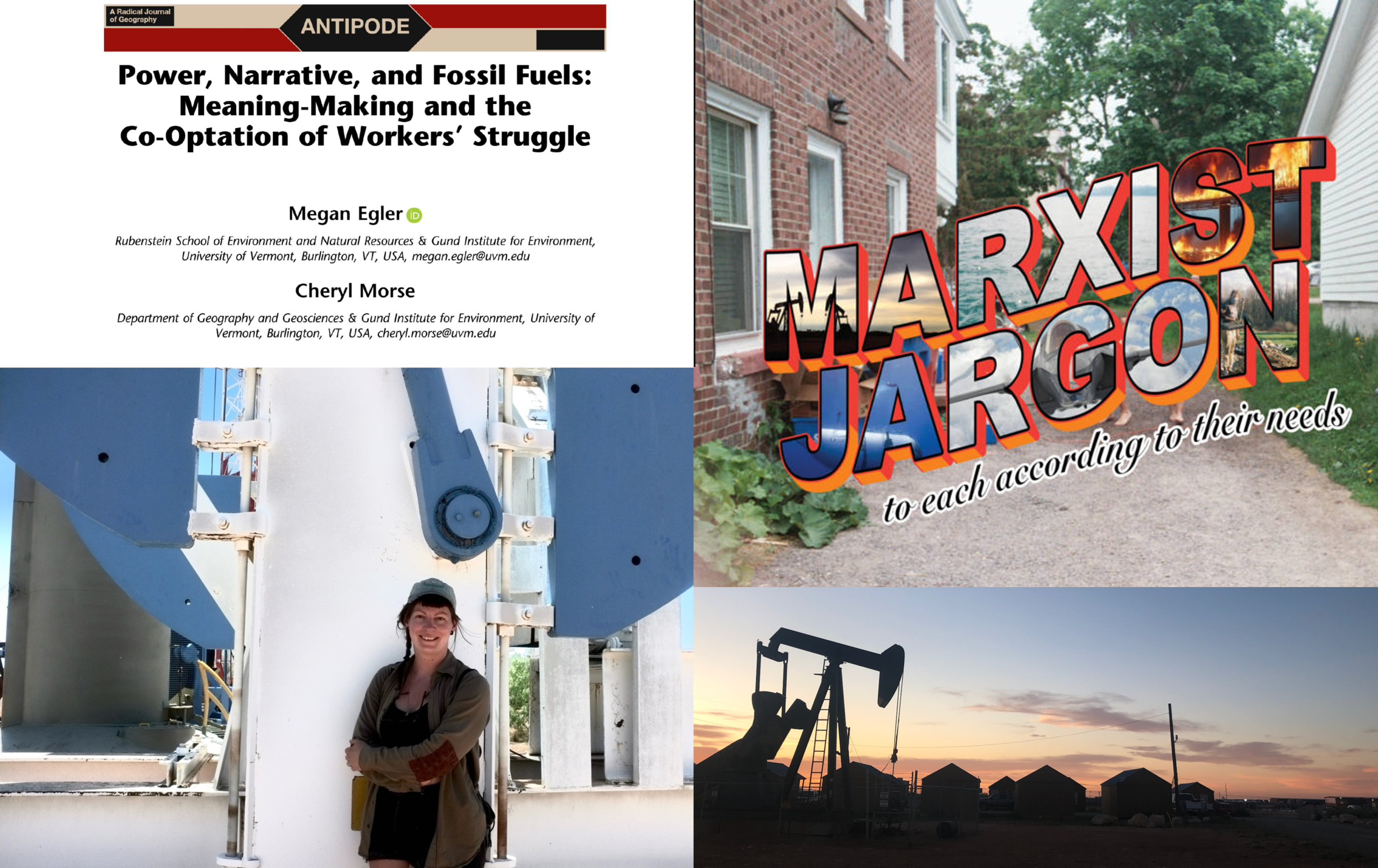Megan Egler (University of Vermont)
I was invited for BBQ at a spot just outside of Stanton, about 20 miles east of Midland, Texas. I’d spent the morning meandering through my interview questions with a few fellas who worked servicing drilling rigs. I’ve often wondered what it was like for them, sitting down to lunch with a stranger, an academic curious about the details of their work, their thoughts and their feelings in relation. The curiosity was mutual. “What, are you an environmentalist or something? A communist? A vegan?” I was often teased—soft sparring that asked, “Who are you? Why are you here?”
Over a lunch punctuated by playful banter, we talked about what it is to be a roughneck, the changing oil and gas industry, and its power dynamics.
I think there’s a shared desire—to relate, to understand the lived experience of another—that can offset the discomfort of suspending distrust long enough to be vulnerable. In this case, distrust between the environmentalist and the one who works in an industry cast as dirty, between a queer university-educated woman and a group of men from conservative rural upbringings, between the academic and the working class that the academy often fails to serve. To some extent, this distrust is manufactured—or at least amplified—by those who benefit from our fragmentation. In other ways, it stems from failing to examine the assumptions we carry about who someone might be—failing to be curious about what we might hold in common.
I wrote “Oilman” in gratitude to the people who trusted me with their words and stories during my time conducting research in West Texas and northern Alberta. I wanted to thank them for their vulnerability with my own—in a way asking, “Did I get it? Does this resonate?” Songwriting also served as a reflective practice to navigate my own inner responses and explore perspective within the narratives I encountered during fieldwork.
The song is inspired by stories of automation in the oil and gas industry, and also workers’ articulations of meaning, sacrifice, and power—the topics of an Antipode paper that I co-authored with Cheryl Morse, “Power, Narrative, and Fossil Fuels: Meaning-Making and the Co-Optation of Workers’ Struggle”.
“Oilman”—performed and recorded by Marxist Jargon, in Burlington, Vermont
You told me, well you think these oil slick hands are burning down the trees
But if we all quit tomorrow, in the middle of the night you’d freeze
Everything on your body baby, we pulled from this here ground
You’d be standing in the corner in your britches, if the oilmen left this town
Then you looked down, yeah you looked down
Cause your boss is pulling levers in Houston
While the robots drill the holes
And you used to have more to be proud of
When your arms were a pair of tools
Now you’re sitting back watching the sun set
On the life you used to know
And the drilling mud’s the only thing keeping you warm
While you stand alone in the cold
You told me, well I spend more time here than I do with my own family
Some men a little rough around the edges, but we’ve been through it all you see
Never seen so much money baby, pulled straight from the ground
But your body’s gotta take a little beating for the rig boss to keep you around
Then you looked down, yeah you looked down
Cause your boss is pulling leavers in Houston
While the robots drill the holes
And you used to have more to be proud of
When your arms were a pair of tools
Now you’re sitting back watching the sun set
On the life you used to know
And the drilling mud’s the only thing keeping you warm
While you stand alone in the cold

I love this.